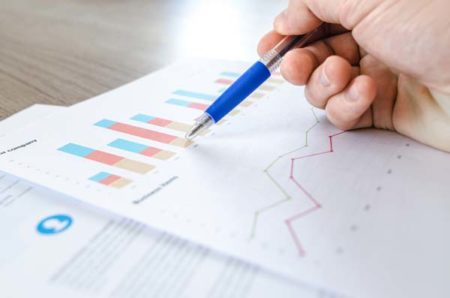Role of Equity Research
Nov 20, 2023 By Triston Martin
The function of equity research is to supply details to market participants. Insufficient information can cause problems that lead to stock prices being inaccurately portrayed (whether over- or undervalued). Analysts rely on their experience and spend considerable time looking at a company, its industry, and its peers to give valuation and earnings estimates. Research is beneficial as it fills in information gaps so that every investor doesn't need to research every stock. This is a way of making it easier for investors to make their decisions.
Research on Bull and Bear Markets
Every bull market has a few exaggerations revealed only during the subsequent bear market. Be it dotcoms, or organic food, every period has its excessive mania, which alters the function that the markets perform. Rationalism is often the first to be lost in the race for profit. Investors are quick to join the bandwagon, and the market allocates capital too much for those in the "hot" sector(s). This "herd mentality" is the main reason why the bull market has financed many "me-too" concepts throughout the history of the world.
Research is an aspect of the market and is affected by market shifts. Banks, media, and investors push analysts to concentrate on hot areas in a bull market. Some analysts turn into promoters when they ride the wave of the market. The analysts who remain sensible practitioners, are ostracized, and their research reports are not read.
The idea of blaming someone else for the loss of investment profits is commonplace during a bear market. It was the case in the 1930s, and 1970s, during the dotcom crash and the 2008 financial crisis. Certain criticisms are justified, but the requirement for providing details about businesses hasn't changed.

How Equity Research Is Changing
It is vital to discern between the two categories of research, namely research from Wall Street and other sorts of research, to evaluate research's relevance in the current market properly. Wall Street research is often offered by sell-side businesses, which are offered by major brokerages located on or on Wall Street. Independent research businesses and specialized boutique brokerage firms are responsible for further research.
This distinction is crucial. It is the first thing to note. Wall Street research has focussed on large-cap and highly liquid stocks. It has also omitted the majority of stocks that are traded publicly. To be profit-oriented, Wall Street firms have focused on stocks with large capitalizations to earn lucrative investment banking transactions and trade profit.
However, they are also faced with the challenge of reducing costs. Companies that are most likely to supply research companies with a substantial deal in investment banking are the ones that have been considered to be to be worthy of being followed by investors. The long-term potential of the stock is usually not the primary factor.
Other research is filling in the information gap created by Wall Street. Independent research companies and boutique brokerage firms provide research on stocks that have been abandoned because of Wall Street. This implies that independent research firms are now the primary source of information regarding most stocks; however, investors are hesitant to spend money on research since they aren't sure what they're paying for until long after purchasing. However, not every research is worth the money because the information could be incorrect and misleading.
Who Pays for Research? Big Investors Do
It is ironic that, while research has proved to be beneficial, individual investors don't wish to invest in it. This could be because brokerage houses offered research to attract and retain customers in the old model. Investors had to ask their brokers to provide a report and get it free of cost. What appears to have been overlooked is the commissions paid to investors are paid for this study.
A reliable indication of the quality of research is the amount that institutional investors will spend on it. Institutional investors usually employ their analysts to achieve an advantage against other investors. Even though the cost of analysts for equity research has dramatically decreased in recent years, some institutions are also paying for the sell-side research they get (either in dollars or by providing the brokerage firm that is supplying trading orders to carry out).

European regulations that came into effect in 2018, require asset managers to pay for external research with their profit and loss accounts (P&L) or via research funds that are accounted for with clear audit trails. This could result in billing clients for trading and research independently.







